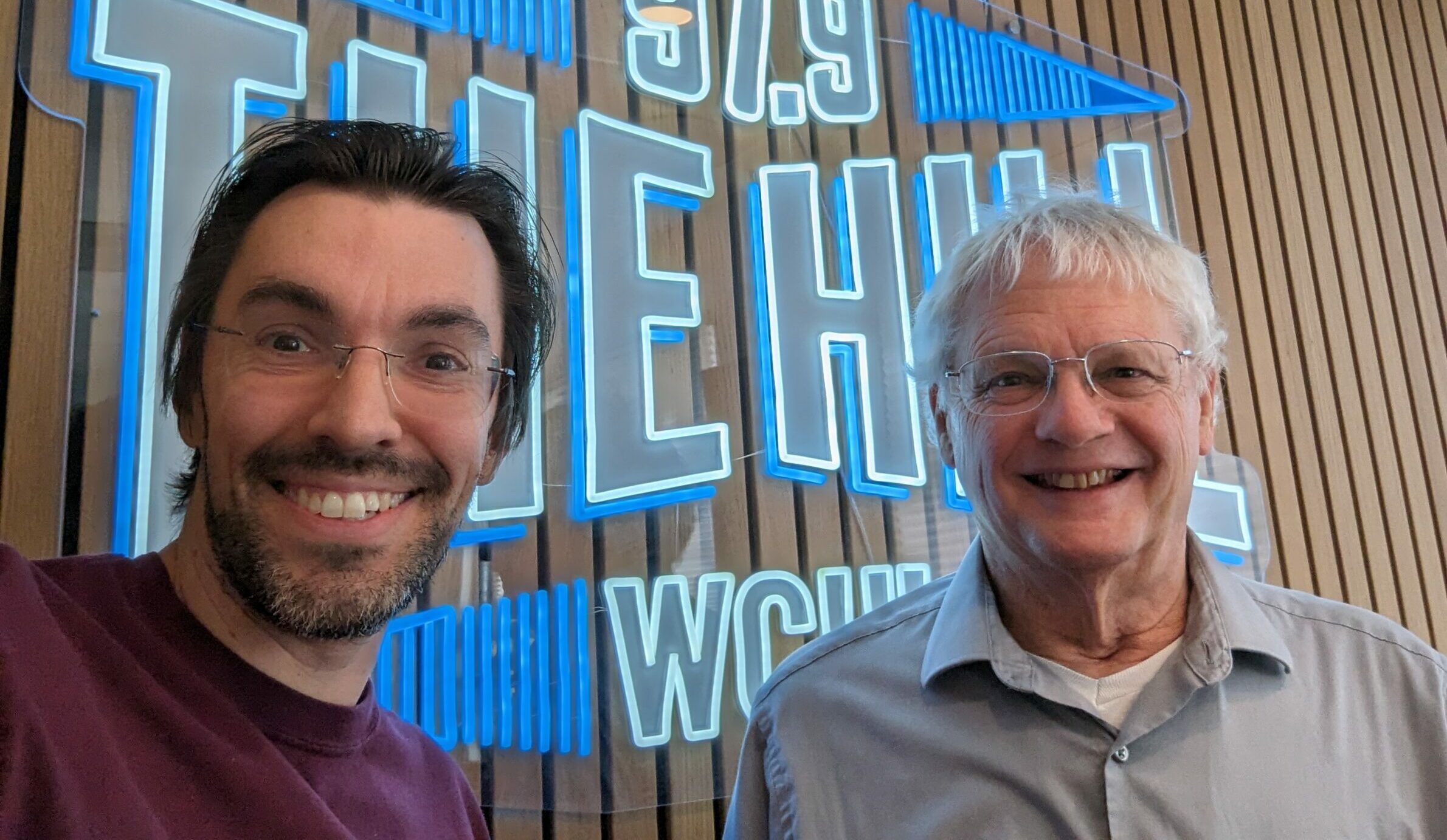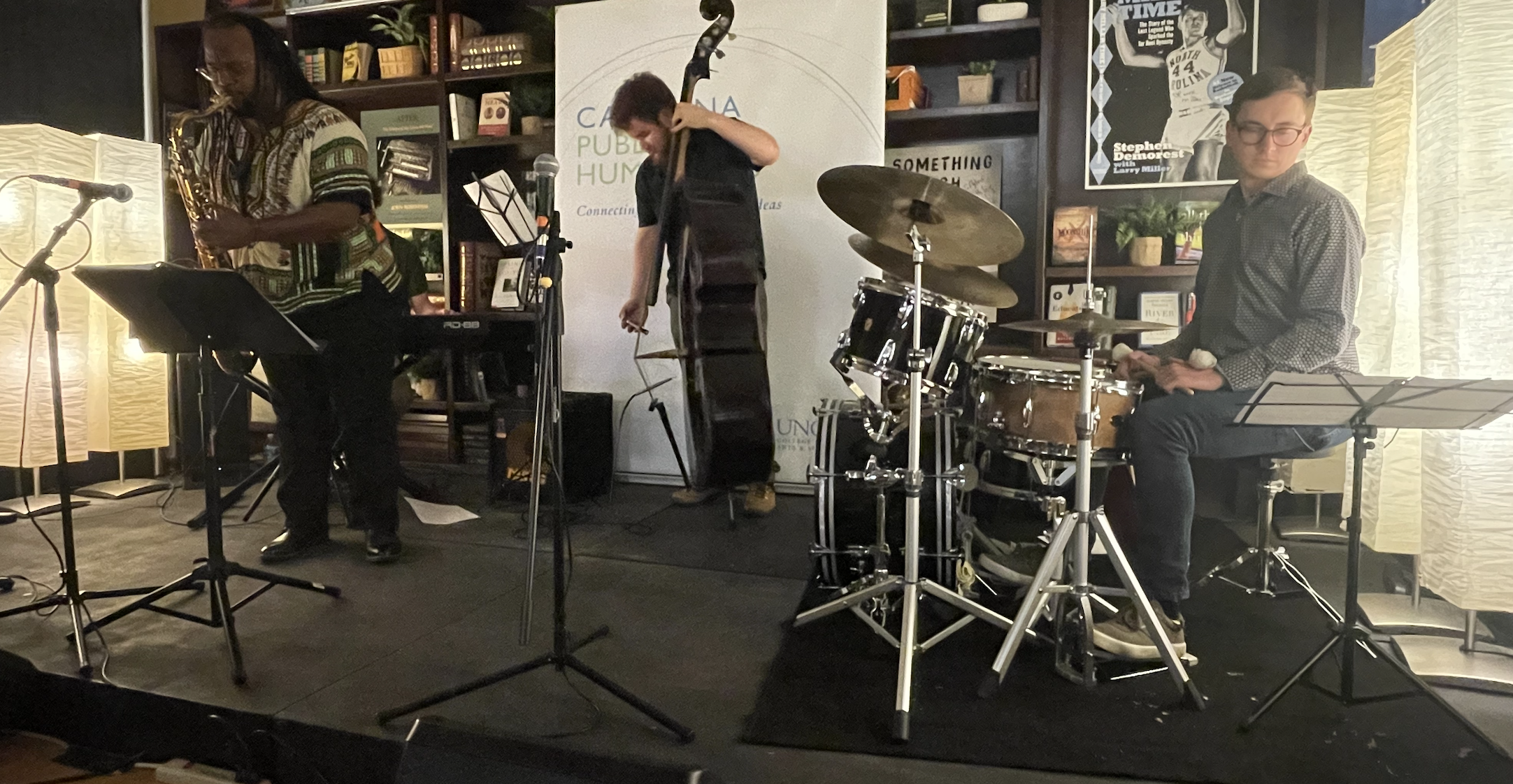In a changing world, in a time of polarization, when misinformation and disinformation are easy to find and hard to avoid, and we so often sacrifice our own joys to deal with the demands and stresses of our daily lives, it’s more important than ever for us to be able to understand it all, to distinguish true from false and right from wrong, to care about the world and try to make it better, and to find ways to seek and achieve our own personal human fulfillment.
And that is where the humanities come in.
Carolina Public Humanities has been operating at UNC since 1979, offering public seminars, lectures, forums and performances in the humanities to students, teachers, and members of the public, not only on campus but throughout the community and statewide. This year’s overarching theme is “democracy,” and CPH has been holding events all year to promote democratic values, engagement, and participation – and to train today’s teachers to instill those same values in students.
Historian Lloyd Kramer has been the director of CPH for the last 10 years, capping a 38-year career on the UNC faculty. He’s heading into retirement this summer, but he says he’s extremely proud of the work he’s done – and the work CPH will continue to do in his absence.
97.9 The Hill’s Aaron Keck recently spoke with Kramer, as part of a regular monthly feature called “Oh, the Humanities!” on This Morning with Aaron Keck.
Click here to listen to their entire conversation. The transcript below has been lightly edited for clarity.
Aaron Keck: What are your thoughts about retiring?
Lloyd Kramer: Retirement is a transition, and I think this is where my knowledge of history and the humanities (is) a helpful framework – because during every transition we need historical perspective. I have been so grateful to have 38 years at this great public university. And I believe in its mission. I believe in the quality of the people who are there, and I believe that it is one of the key institutions in the state. So although I’m retiring, I remain deeply committed to the mission and goals of the University of North Carolina.
Keck: One of the nice things about having historical perspective is (that) you have some perspective on how institutions have evolved and changed and remained the same. How about UNC? You’ve been here for three decades. What’s changed? What hasn’t?
Kramer: The university has changed in so many ways, in some ways definitely for the better. We have a more diverse community. We have far more international students. We have a more diverse faculty. We have moved into all kinds of new areas of research and teaching. We have improved in many ways: our technology, obviously, but (also) our ways of communicating with people beyond Chapel Hill. I think these things have changed, but there are also some continuities, (like) the amazing quality of the people at the university. I have had the privilege of teaching UNC students for 38 years, and every year I have learned something from the students, both undergraduates and graduates.
I think the more troubling changes have to do with the general sense, among the faculty and others, that we have lost some of the autonomy we had in the earlier years. The governing boards are playing a more interventionist role. There’s certainly concern about political interventions in the life of the university and how we can sustain academic freedom, the diversity of opinions, (and) the commitment to public service in all forms. I think these are challenges going forward.
Keck: Do you see that having an impact on the ground, in terms of the way that classes are scheduled and conducted, and the way that faculty and students go about their daily business?
Kramer: Faculty are concerned that there’s more intervention, or there can be more intervention – even in things like the way they organize their work plans. We now have to do, starting this year, an official meeting with department chairs to lay out what percentage of our time we do on research or teaching –
Keck: And how much time you spend in meetings with the department chair?
Kramer: <laugh> Yes, that would be another thing. You know, there’s a sense of micromanagement at the university also. They’re instituting a new requirement that every graduating student has to have had a course in which certain documents were taught: the Constitution, or the Federalist Papers, or the Declaration of Independence. I’m not opposed to these documents, I think students should know about them – but this level of intervention in course syllabi goes beyond anything we ever saw in my early years at Carolina.
Keck: We always, whenever you’re here, talk about the importance of studying not just history, but the humanities writ large, when it comes to understanding and shaping and improving society and democracy and institutions.
Kramer: This is the great contribution that humanities make to our civic life. I often say to people that a healthy civic culture and civic life is as important to our state as physical health. And so, just as a school of public health assures that communities have a more robust healthcare system, institutions like Carolina Public Humanities help to assure that we have a robust civic health – because without knowledge of history or literature or the complexities of different cultures, we can’t sustain a democracy.
When I think about the honor I’ve had to be the director of Carolina Public Humanities for 10 years, I am so pleased that we have been able to constantly expand the parts of the state we reach, the numbers of teachers that we work with, the community colleges that we partner with, and the members of our own Chapel Hill community who come to our weekend programs and seminars and public conversations. I can’t stress enough how important I think it is to sustain that tradition of public conversation.
Keck: What’s the most memorable or the most enlightening or insightful CPH event that you’ve seen in those 10 years (as director)?
Kramer: Around the second year, we organized a conversation on the public university and why it matters to our state’s culture. And we invited Tom Ross, who was the president of the system – (and) between the time we invited him and the time of the conference, he was fired from his position as president. We had Carol Folt, who was then the chancellor, (and) Kevin Guskiewicz, who had just become the dean (of Arts & Sciences). We had a robust public discussion about why an independent and vibrant public university was essential for the life of our state. That was a memorable event…
We (also) started the Adams Symposium each year in April, (with) public discussion on a key issue. We launched this with the philosopher Martha Nussbaum, who came from the University of Chicago –
Keck: One of my favorites.
Kramer: She was amazing. She talked about how anger and forgiveness must be part of political movements. For example, Martin Luther King or Mahatma Gandhi – they’re angry about injustice, and yet they don’t focus only on the anger. They think of strategies to forgive those who have done them wrong – and to change the world, out of that anger and forgiveness.
Keck: That’s a really important point: I think (we tend) to say emotions and passions are things that we should try to leave out of politics and political discourse as much as possible. But that’s wrong. Emotions and passions are what move us to get off the couch in the first place, and get out there and act, and right injustice, and improve society. They’ve got to be harnessed and used properly, but they need to be a part of politics and discussion – and history helps us understand, and humanities help us understand, how to do it, how to do it right, how it’s been done right, how it’s been done wrong, and what we can do to be better about it going forward.
Kramer: That is absolutely right. The humanities are about ideas, abstract, philosophical concepts, but they’re also about emotions, about what drives people to act, their fears, their aspirations, their love. And what is so rich about the humanities is that it gives us a way to bring together all the layers of human experience and show how those layers of human experience connect with the social and public institutions in which people live their lives.
Keck: What’s your hope for UNC?
Kramer: I hope the university will be able to sustain its traditions, which include robust debate, diverse kinds of courses, (and) talented students and professors. But I also hope that people in the leadership roles in our state, in the state government and the Board of Governors (and) the Board of Trustees will understand what a jewel the university is, how the people there can be trusted to do creative work, who have an imaginative approach to complex problems. And I hope the university will be able to thrive without too much intervention, even as it remains deeply connected to the state.
Keck: Last question: in 38 years, what’s the number one most important lesson you’ve learned in your career studying or teaching history?
Kramer: I think what I’ve learned is that human beings are incredibly resilient. That we all pass through times of anxiety and fear, both as a community and as individuals. And yet human beings always find creative solutions that enable them to move forward, in both their personal and public lives. We can never see where we’re headed next. And we never know if our lives will really make a difference. But history shows that everything we do ultimately has meaning and makes a difference in the human community.
Visit CPH online at Humanities.UNC.edu.
Chapelboro.com does not charge subscription fees, and you can directly support our efforts in local journalism here. Want more of what you see on Chapelboro? Let us bring free local news and community information to you by signing up for our newsletter.




